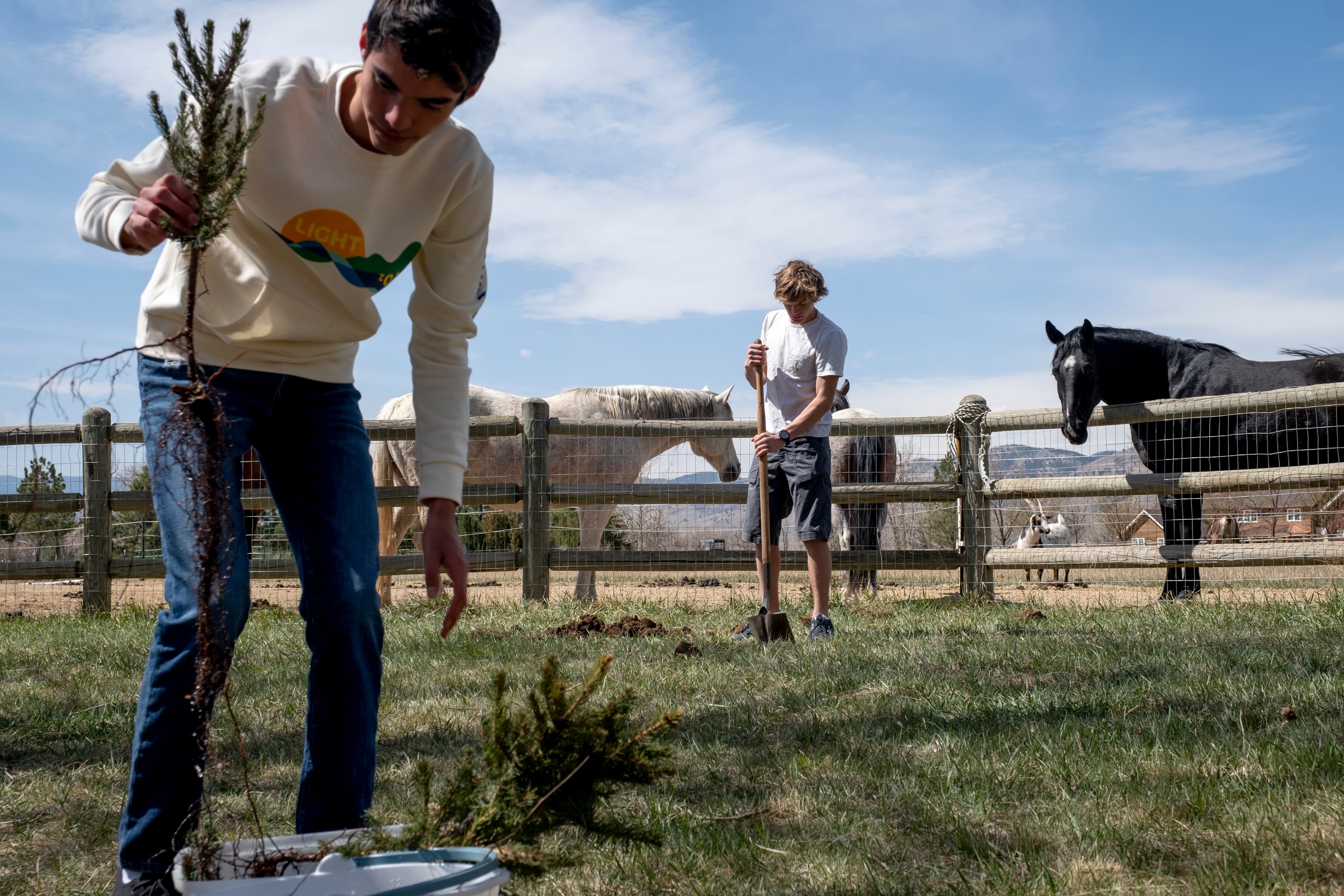Sign up for our free monthly newsletter Beyond High School to get the latest news about college and career paths for Colorado’s high school grads.
Colorado lawmakers hope to pass legislation this year that will help students show they have an understanding of climate literacy when they graduate high school.
Senate Bill 14 would allow Colorado districts to provide a seal of climate literacy when awarding a high school diploma if students study or gain skills related to the environment. Proponents say it would fill a growing demand to learn about the climate and help graduates show they have the skills for green jobs or a background in managing Colorado’s natural resources.
For students to earn the seal, they would need to complete coursework or demonstrate certain skills determined by districts and complete a project.
State Sen. Chris Hanson, a Denver Democrat, sponsored the bill to help schools across the state recognize students for participation in programs and classes that are already taking place statewide. Those programs could include what students learn in Future Farmers of America, science classes, apprenticeships programs in green jobs, or learning about energy conservation and resource management.
He said the seal would help students get skills for jobs that are expected to grow by 10% in the next five years, including installing solar panels, electric chargers, heat pumps, or heating and cooling systems. He said those jobs support Colorado’s pledge to reach its climate goals.
“Young people, they recognize and want to make sure they understand the complexities of climate issues,” Hanson said.
The bill cleared its first hurdle Monday during a Senate Education Committee with a party-line 4-3 vote. State Sen. Paul Lundeen, a Monument Republican, voted against the bill because of concerns that the program would pull focus away from the core mission of getting Colorado students proficient in English, math, and science.
However, educators who attended the hearing said the climate programs they already teach have helped students make stronger connections in other subjects.
The seal wouldn’t be the first of its kind. Colorado also has a seal of biliteracy that schools can give to students who have attained proficiency in two or more languages.
The bill, also sponsored by Rep. Barbara McLachlan, a Durango Democrat, provides about $22,700 in annual statewide funding that the state will use to support schools issuing the seal of climate literacy.
Approved classes to earn the climate seal include Advanced Placement physical, life, or earth sciences, or a career education program geared toward climate literacy, such as learning trades in alternative energy like solar farms. The state will also develop a report about the seal to understand how schools teach about climate literacy.
South Routt School District Superintendent Kirk Henwood, who leads the district near Steamboat Springs, said during the committee hearing that the seal would allow the district to provide recognition for work that it already does, such as teaching students about land management in an area with a long agricultural history.
“Having a seal of climate literacy furthers our efforts to ensure that our high school graduates have the verified skills and knowledge needed to enter the workforce and postsecondary education opportunities,” he said. “Understanding the climate and environment is critical to sustain a rural way of life where land and water are literally the building blocks of our world.”
Colleges across the state also have climate programs, Hanson said, and the seal would help students continue their education by demonstrating their understanding of climate literacy to colleges and universities.
The seal would also help Colorado students connect to jobs, including in supporting a new statewide partnership that looks to strengthen the state’s emerging climate sector.
In an announcement on Monday, colleges and universities across the state announced a new partnership with the CO-WY Engine, an initiative that helps advance Colorado and Wyoming’s ability to address, analyze, and monitor the region’s climate.
The investment by the U.S. National Science Foundation’s Regional Innovation Engines program will spend $160 million over 10 years to support that work, including growing the workforce needed for new or existing jobs, according to the announcement.
Jason Gonzales is a reporter covering higher education and the Colorado legislature. Chalkbeat Colorado partners with Open Campus on higher education coverage. Contact Jason at jgonzales@chalkbeat.org.






